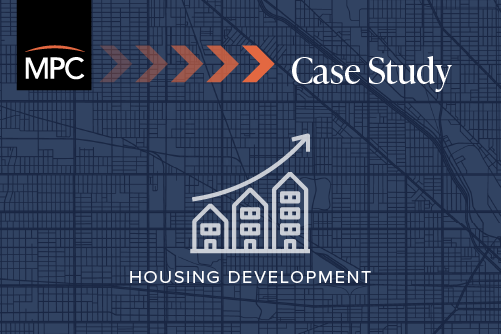Georgetown
Batavia
Housing Development

The development
Georgetown was developed by Jerome O’Connor and is located near the intersection of Western Avenue and Wilson Street in Batavia. The development was built in three phases from the early to mid-1990s, with each phase bringing a different architectural style and aesthetic that complemented the surrounding environment and addressed the changing needs of prospective buyers.
The site of the development was originally farmland and was rezoned to accommodate Georgetown as the housing boom of the mid-1990s led to a spike in new construction throughout the City. The development received little public resistance and was hardly debated within the City Council or Planning Commission, which cleared the way for a smooth development process. Georgetown is directly across from Batavia High School and the Batavia Fine Arts Center and within walking distance of the City’s downtown and commercial areas on Randall Road.
The development offers market rate one-bedroom, two-bedroom and three-bedroom units and has a total of 239 owner occupied units. The development did not target a specific demographic and was only marketed as multifamily housing. Georgetown became an attractive option for existing Batavia residents predominantly seniors and empty nesters—who wanted to stay in Batavia but downsize to more affordable homes near amenities and other community services. Units were designed to be smaller and more compact than single-family homes, and as a result, were touted as an energy-efficient alternative. Their size also helped them to be cheaper than most market-rate housing in Batavia. Georgetown has a homeowners association, which appealed to the growing population of seniors looking to age in community and offload the responsibility of maintenance and upkeep. The large migration of existing Batavia residents to Georgetown began a period of remodeling and renovation of older housing stock in the City that was vacated by these residents. As a result, Batavia was able to attract younger families to move into these homes, sparking a shift toward a more generationally diverse community.
Contact
Department of Community Development, City of Batavia
630-454-2000, www.cityofbatavia.net
-
Target
No specific targeted demographic.
-
Development information
Type: Townhomes
Total Units: 239 -
Funding sources
No public funding.
-
Successes
The multibuilding complex is fully occupied and has been kept in a state of good repair.
-
Lessons learned
The City made a good choice in broadening housing options. New choices have helped prevent resident displacement.